Article Contributed by June Reedy
Published on November 13, 2025
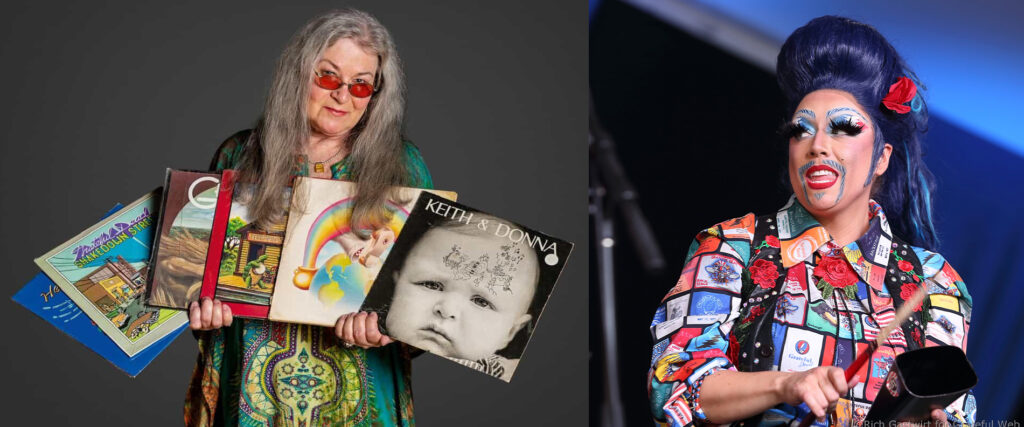
Next year, February 6th and 7th, Bertha: Grateful Drag will take the stage at Chicago’s Thalia Hall for two nights of joyous rebellion. Part Grateful Dead tribute, part Grateful Drag, all heart, the band channels the Merry Prankster ethos of the Dead through an unapologetically queer and feminist lens. Founded by Grammy-winning Nashville artist Melody Walker (aka Daddy Bertha) and Caitlin Doyle (Mommy Bertha), Bertha has built a devoted following for their bold reimagining of Dead classics and their commitment to radical joy and inclusion.
Beneath the sequins and soul is a story about legacy, and their upcoming Chicago shows are more than concerts – they’re a celebration of legacy, rebellion, and love.
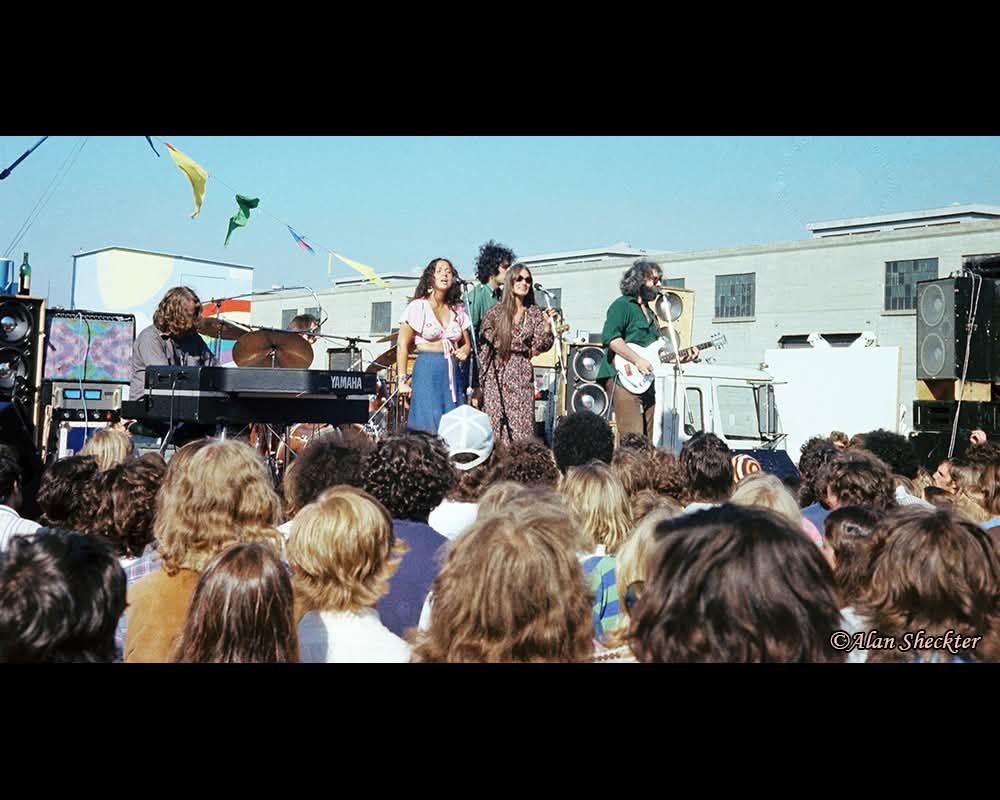
Donna Jean Godchaux has long held a “it’s complicated” place in Grateful Dead history. Her story wasn’t always celebrated, but this underdog – steeped in Southern soul and tradition – had what it took to stand shoulder to shoulder with the boys for nearly a decade. Though many still wonder what could have been, we can stand on the shoulders of her giant spirit today.
Her influence lives on through BoomBox, the eclectic, mood-enhancing musical project carried forward by her sons Zion and Kinsman, and through the soulful songs that continue to bear her unmistakable imprint. It’s got emotion and a tempo all its own – hard to define or categorize, much like their mother.
Living boldly, we see Donna Jean’s legacy alive in Bertha: Grateful Drag, a project that channels her power, grace, and freedom. Few embody the gospel of Donna Jean quite like Melody Walker, who fronts the band as Daddy Bertha and carries her spirit to a whole new generation of listeners.
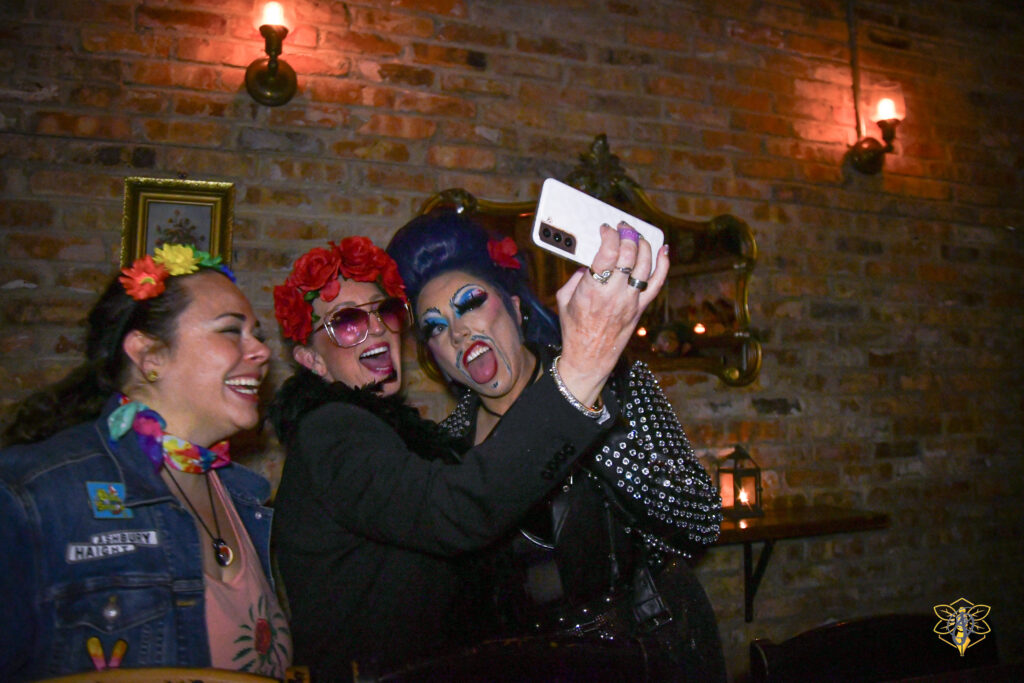
An on-air tribute to Donna Jean was beautifully curated by Meagan Panici on Chicago’s home for freeform radio, WZRD 88.3, The Wizard. Melody and others in the jam band world called in to talk about Donna Jean and the legacy that will live on in her together with her band, Bertha: Grateful Drag. Here are a few highlights from Meagan’s interview with Melody Walker.
“We are first and foremost a Grateful Dead tribute band, the world’s first and only Grateful Dead drag tribute band. The dubious distinction is all ours. We started doing drag as a protest in Tennessee because Tennessee tried to ban drag with all this culture war stuff going on in the South. We did it as a one-time benefit, and it kind of went viral. People were like, ‘Wait! You gotta come to my city too.’ So we’ve been around, playing in different cities doing benefits for local LGBTQ organizations.”
The act of joyful resistance feels like something Donna Jean herself would have applauded. The movement, the music, and a lil bit of mischief reclaim a space that Donna Jean opened the door into.
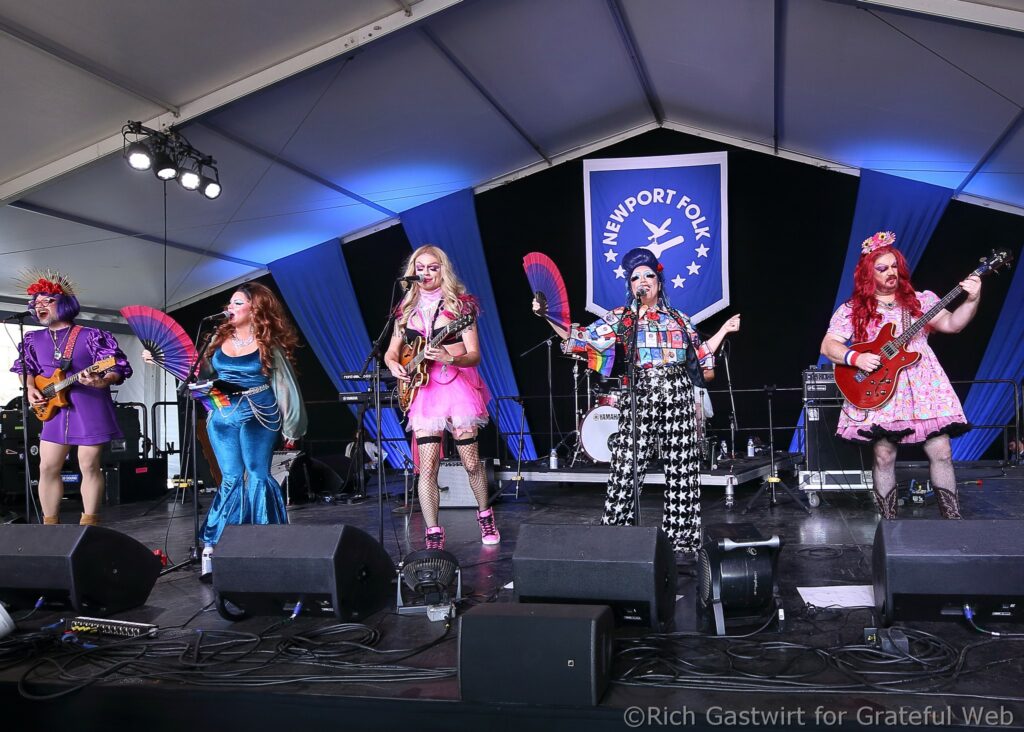
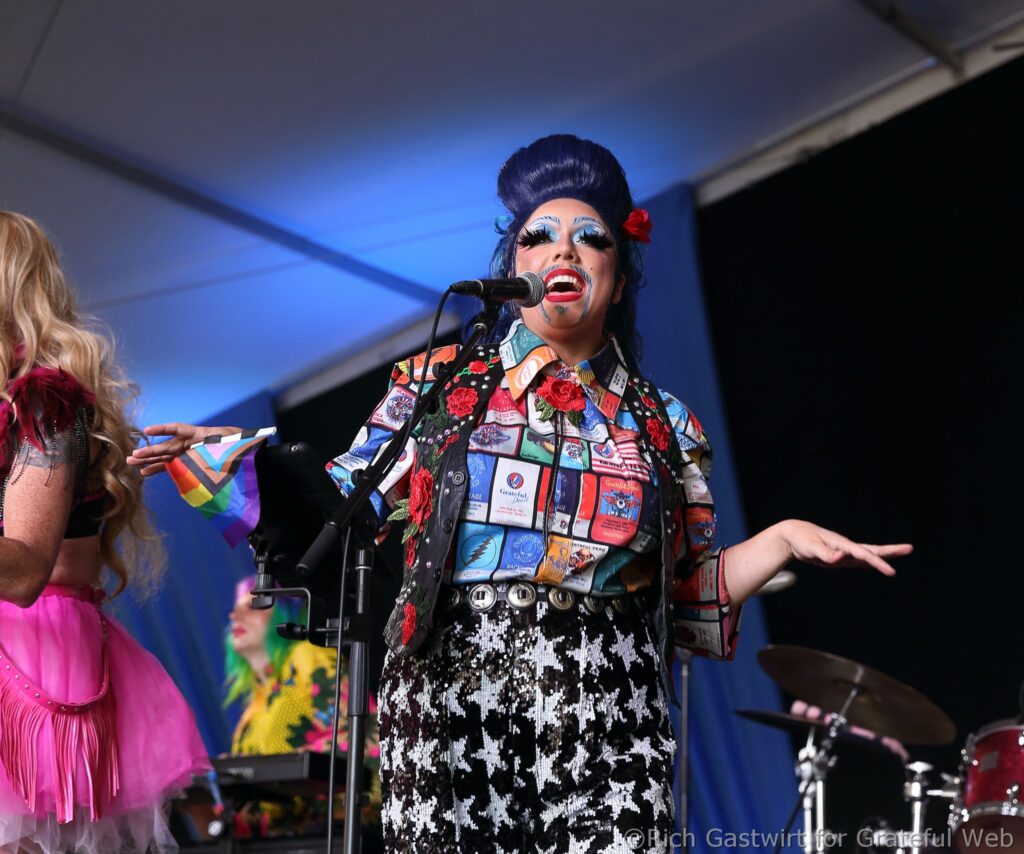
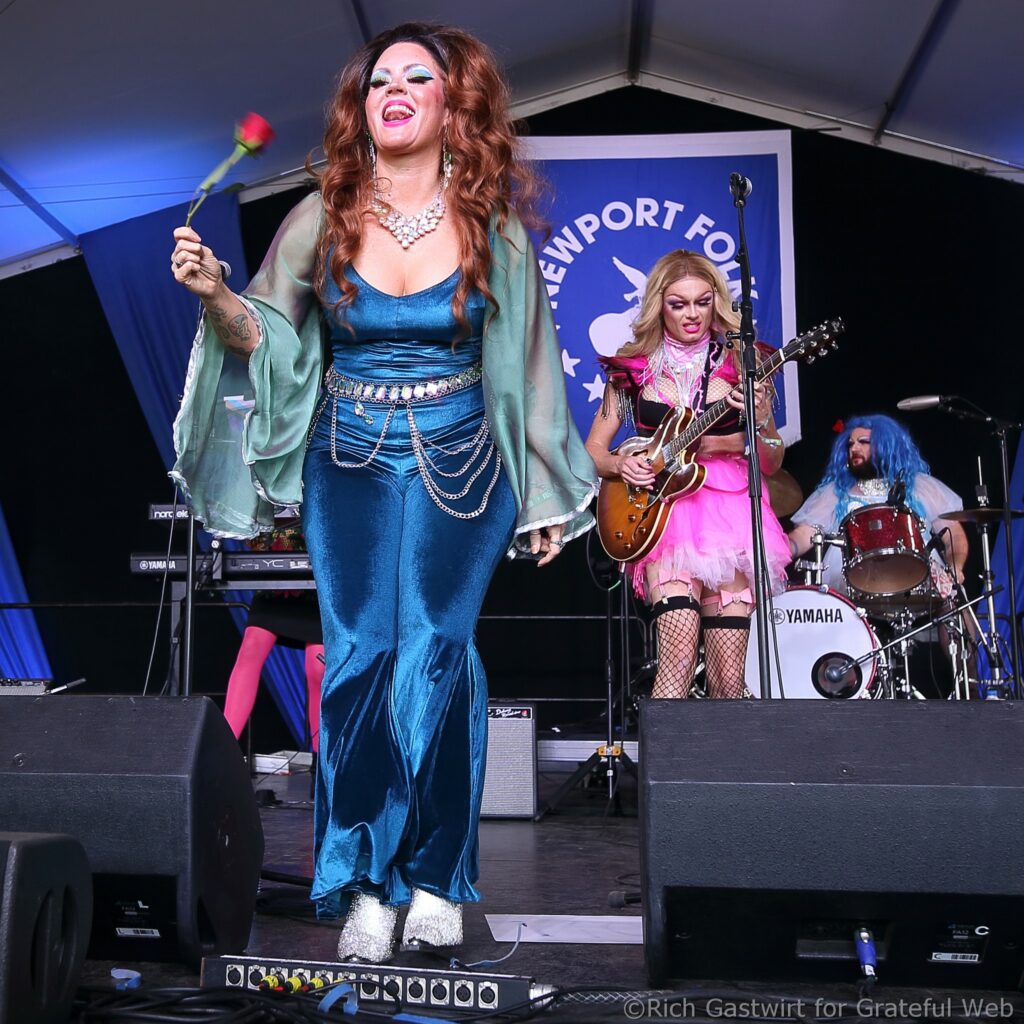
Grateful Web contributor Rich Gastwirt was on hand at the Newport Folk Festival 2024. He commented on the show, “The vibe was surprisingly rocking – it was at the Harbor Stage which is usually more laid back, but everyone was dancing, more so than the other acts. The set times are on a 15-minute stagger, so I only stayed for a song or two, but the joint was jumpin.”
Women have to be perfect,” Walker said. “As if they aren’t supposed to take musical risks or make daredevil choices. Donna freakin went for it and you HAVE to do that to find the gold. That was the whole point of the Grateful Dead.”
During Donna Jean’s years with the Grateful Dead (’72–’79), she was the only female touring with one of the world’s most iconic bands. Her role was both transcendent and, at times, isolating. Her voice – the backup singer for Elvis and Percy Sledge- knew what to do, but as she recounted, growing up in a studio atmosphere did not prepare her for the indulgent live shows that the Grateful Dead were immersing themselves in.
Melody Walker related to this feeling succinctly when she said, “Every single person in the Grateful Dead made mistakes. They were a part of the process. That was the whole point. They were all taking risks, but if Donna couldn’t hear herself in the monitor, she’d hear no end of it. The band had her back. She understood the Grateful Dead’s approach. She was right there with them, doing the same thing. You can’t love the Grateful Dead without Donna. Period.”
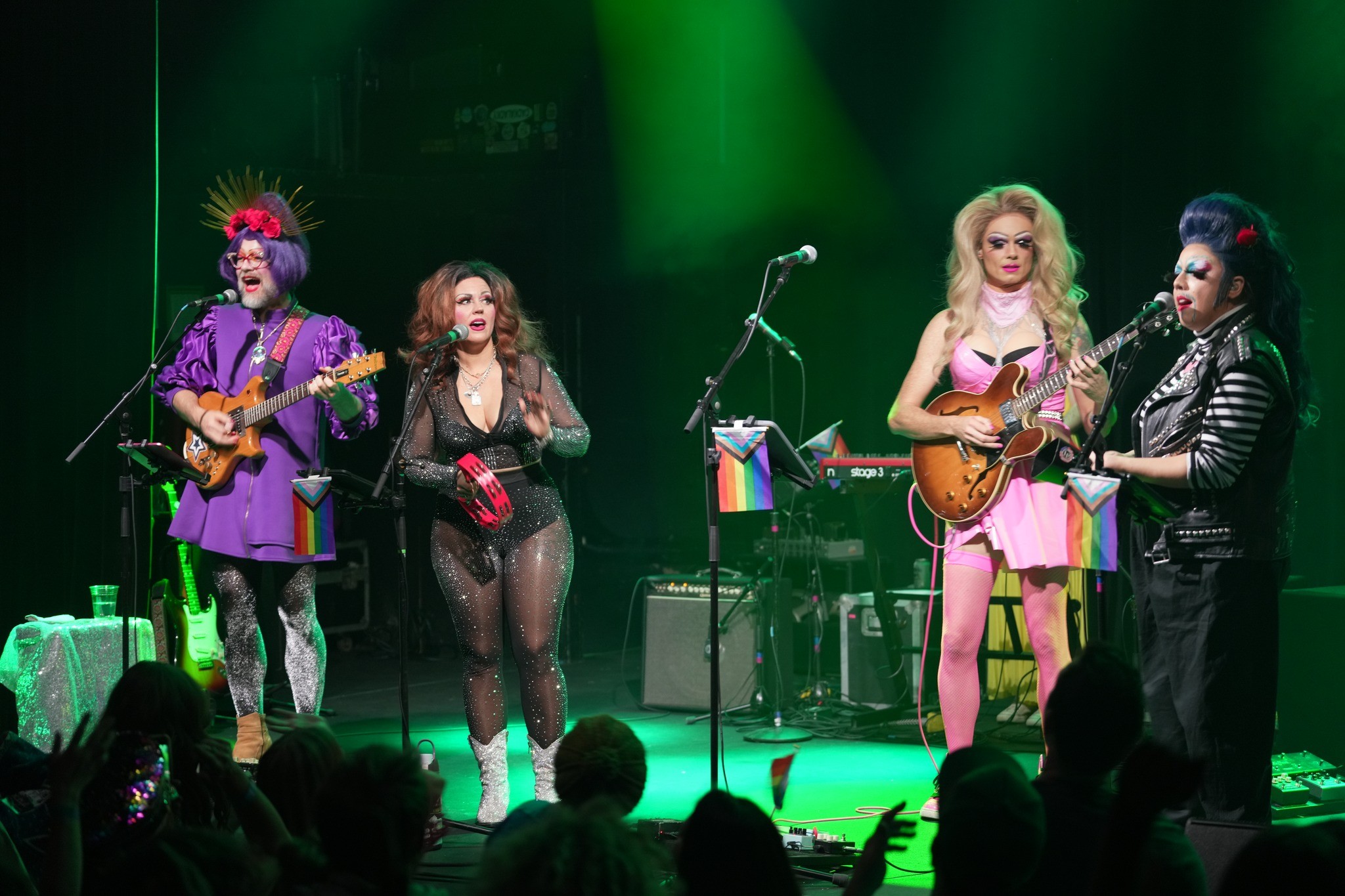
For Melody Walker and Caitlin Doyle, creating Bertha came as a way of reimagining that legacy – giving voice to the women who have always been here but rarely spotlighted. The spirit of harmonies and communal idealism came to live in Bertha. Audiences may be skeptical at first, but hearing higher keys and multiple female voices reward them in the end.
“We don’t play by the rules of ‘This is a Jerry song, this is a Bobby song,’” said Walker. “We all split the leads. We like to say, We are all Donna here.”
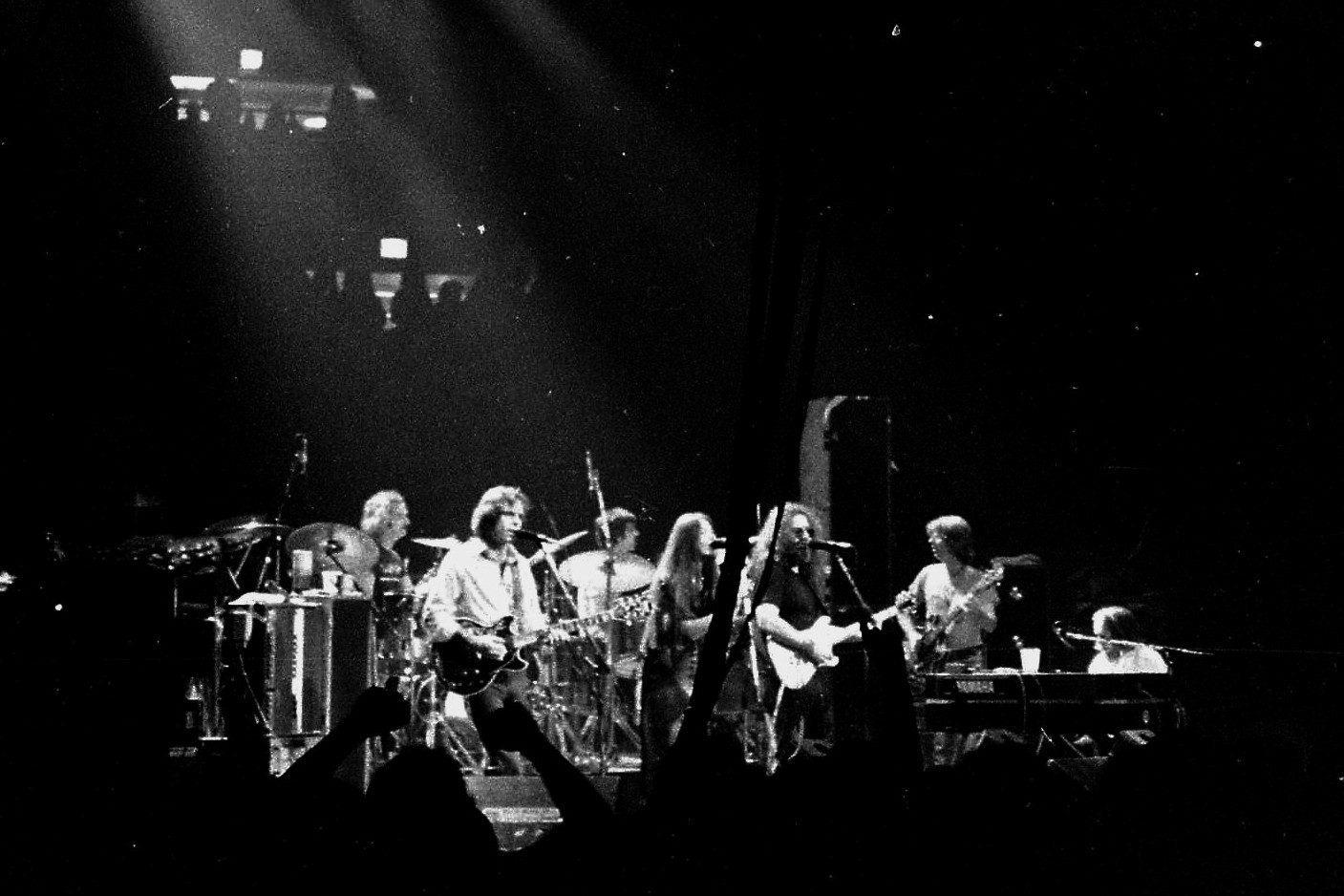
That vision of equality began with Donna Jean standing shoulder to shoulder with the fellas.
The ridiculousness of the Grateful Dead is so in line with what we are doing in Bertha,” Walker said. “To get into costume, be free, and be liberated. The Grateful Dead were inherently psychedelic, so we figured, why not look psychedelic too?”
Being critical is part of the show, especially in the jam band scene. It’s about spontaneity, not living up to expectations. Every event the Grateful Dead were a part of became a scene – not just the act on stage. It’s about shared experience, and that always includes critique.
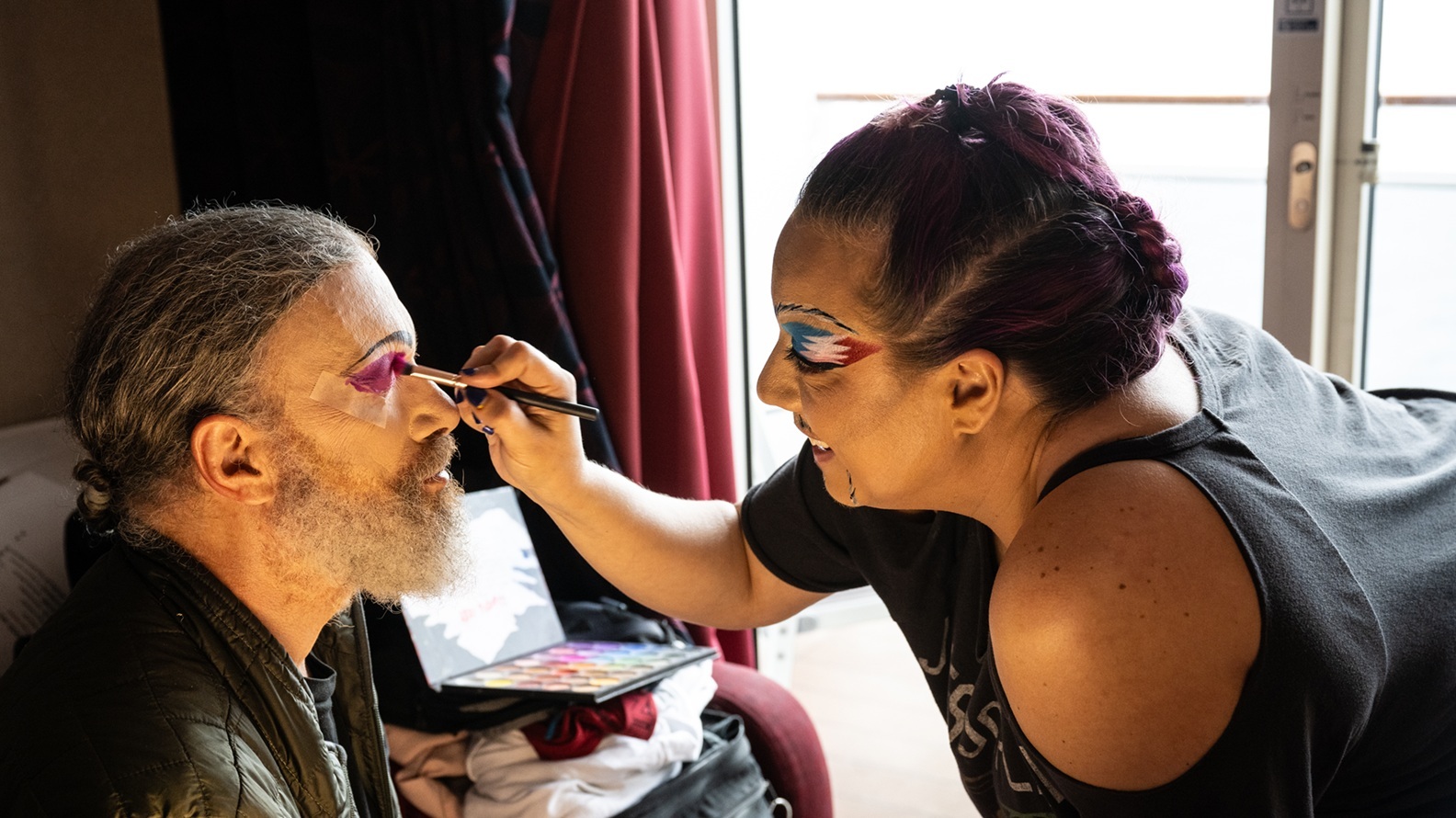
Anyone who sits in with Bertha gets in drag. That’s the rule.
In one now-legendary story, guitarist Steve Kimock joined Bertha: Grateful Drag on Jam Cruise. Melody Walker recounts, “Kimock called Donna to tell her about Bertha. She was rolling on the floor laughing. Then she said, ‘I’ll up the ante. I’ll send you my dress from Egypt!’ And SHE DID!! She sent her actual tie-dye kaftan from the Grateful Dead’s Egypt ’78 shows. She also told him to guard it with his life because he was going on a boat. A kaftan is such a chill thing to wear. Everyone should rock a kaftan. It was comfy. He looked so good, I’m so glad it fit him. I did his makeup personally.”
The track “Iko Iko” from Bertha on Jam Cruise is on YouTube featuring Donna Jean Kimock. Look it up — it’s truly a one-of-a-kind moment captured forever.
We’ll see if we can get Bobby in a wig and dress, but that’s an even taller order.
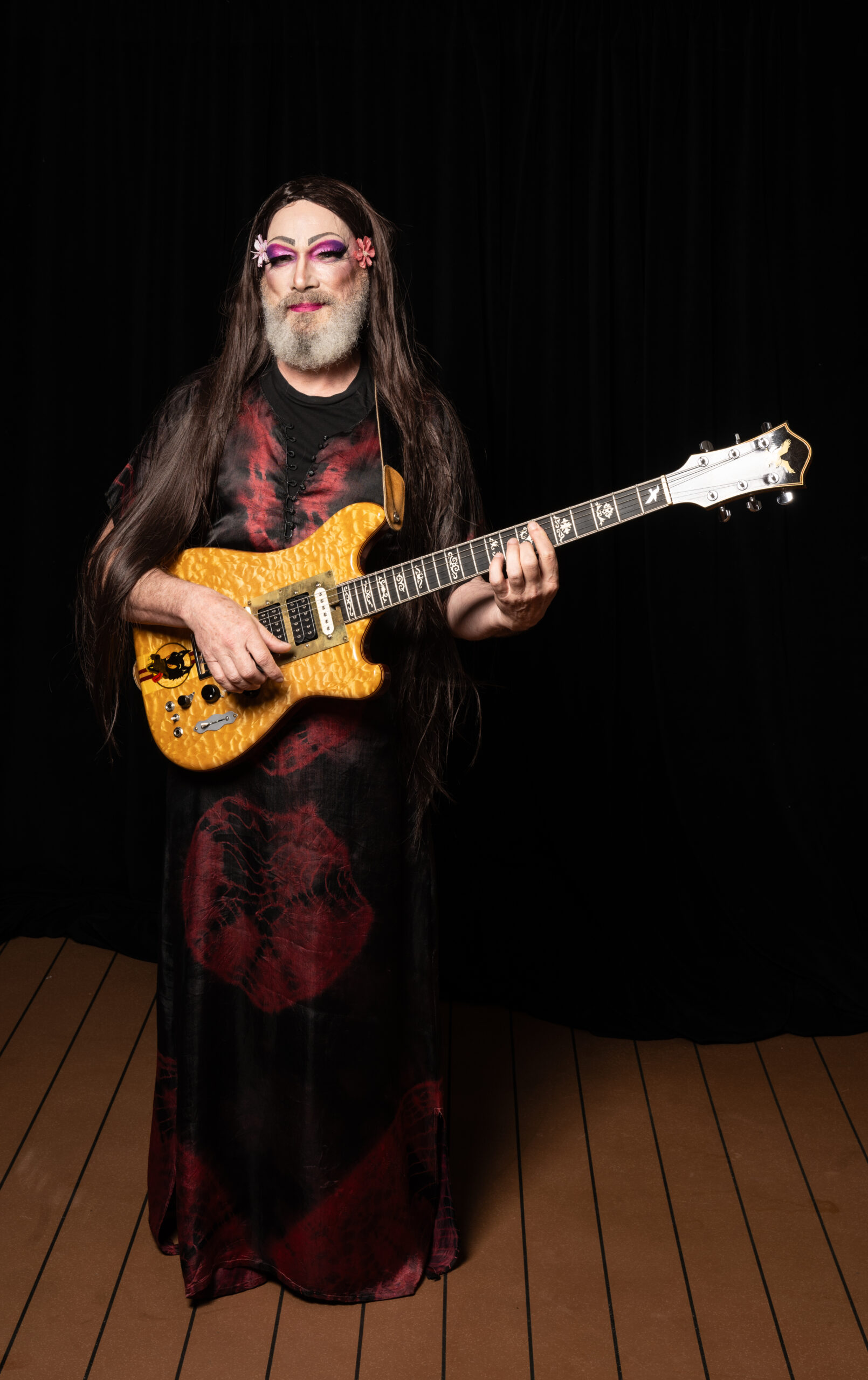
Steve Kimock sporting Donna Jean Godchaux’s Kaftan from Egypt ’78 | Photo by Michael Weintrob
“Never in our wildest dreams did we think that we would have actual Grateful Dead drag on stage with us. We have gotten to play some of the band’s original instruments. The Grateful Guitars Foundation gave our guitarist, Auntie Bertha (aka Thomas Bryan Eaton), Alligator, to play at the Great American Hall in San Francisco.”
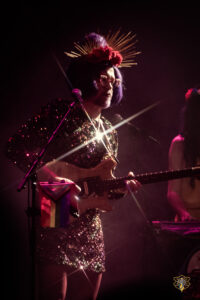
The literal passing down of Donna Jean’s garments is poetry unto itself. The outcast of the band of outcasts sent her colors forward into a new generation unafraid to wear them proudly.
“Donna had grit,” Walker said, “It takes a lot to stick with it despite the hard knocks. The first impressions I had were that the fandom were disrespecting her and feeling a certain way about her contributions. I feel like that is so true for a lot of women in rock and roll, especially if they are not the lead singer. It’s like they are an accessory and not the main course… I’m so glad there is a female voice on these Grateful Dead recordings. It’s so soulful.”
“She brought that Muscle Shoals sound into the Grateful Dead. She’s so bluesy and swampy. She’s just IN it. It’s so perfect.”
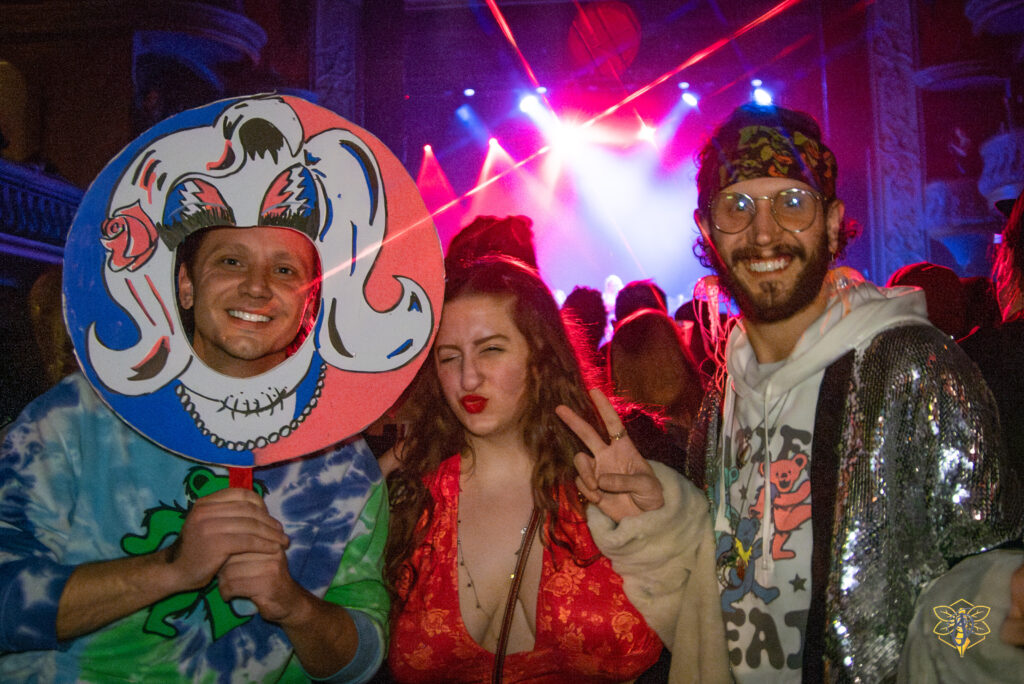
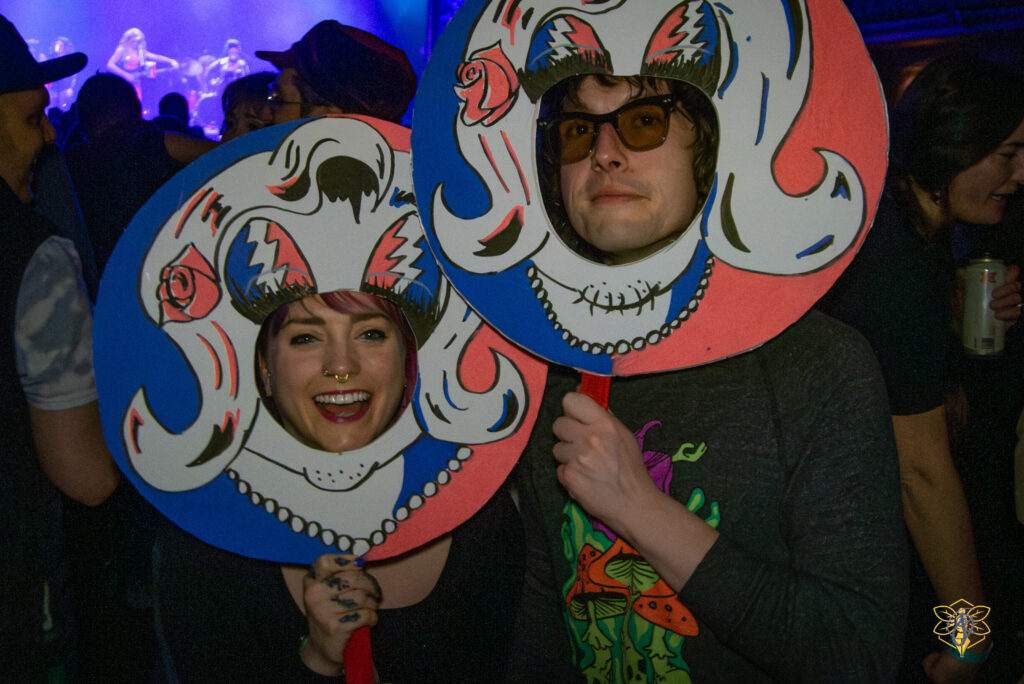
For Walker, for Bertha, and for every woman who has ever stepped on a stage that wasn’t built with her in mind, Donna Jean Godchaux’s legacy is both a lesson and a permission slip: take the mic. Make mistakes. Be loud. Be bold. Be free.
The truth is, the Grateful Dead were never about perfection – they were always about possibility. Donna Jean Godchaux remains the most human embodiment of that truth.
Our love will not fade away. Singing your truth in the heavens, Bertha will take the lead down here for now.